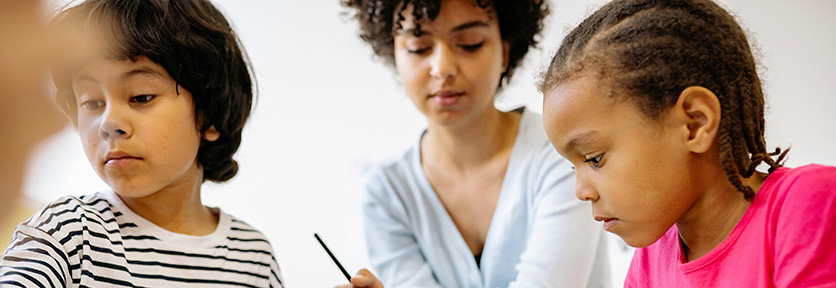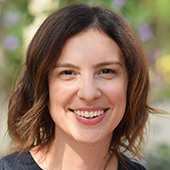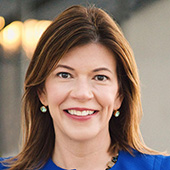Universal Pre-K
Overview
Early childhood education is crucial for cognitive, social, and emotional development, setting the stage for future success. Recognizing its critical role, state governments are investing in and expanding access to Pre-Kindergarten and other early childhood programs. What does research say about the impact of these investments on children's outcomes and the long-term benefits of early education?
Featured Expert(s)
Terri Sabol
IPR developmental psychologist Terri Sabol conducts research at the intersection of child development and social policy. She investigates how individual and environmental factors contribute to children’s healthy development.
Read bio
Diane Whitmore Schanzenbach
IPR economist Diane Whitmore Schanzenbach studies policies aimed at improving the lives of children in poverty, including education, health, and income support policies. Her work traces the impact of early childhood education on children’s long-term outcomes.
Read bio
Research Roundup
Does the Impact of Universal Pre-K on Access Vary Based on Neighborhood Poverty Rates?
In this
report, IPR developmental psychologist
Terri Sabol and IPR economist
Diane Whitmore Schanzenbach investigate the impact of Chicago’s new free, citywide Universal Pre-K program based on neighborhood poverty rate. They find there is some variation in available seats between high- and low-poverty neighborhoods.
The Impact of Chicago’s Universal Prekindergarten Expansion on Access to School-Based Pre-K, 2023–24 Update
A
report by IPR developmental psychologist
Terri Sabol and IPR economist
Diane Whitmore Schanzenbach reveals that Chicago’s new free, citywide Universal Pre-K program had a positive impact on enrollment in Chicago Public Schools schools for 3- and 4-year-olds.
Early Care and Education Trends in Chicago's 47th Ward
This
report, co-authored by IPR developmental psychologist
Terri Sabol and IPR economist
Diane Whitmore Schanzenbach,
finds that pre-K capacity and enrollment in Chicago Public Schools remained steady in the 47th Ward on Chicago’s North Side from 2015–16 to 2021–22.
Pre-K Capacity and Enrollment in North Lawndale
IPR developmental psychologist
Terri Sabol, IPR economist
Diane Whitmore Schanzenbach, Kathryn Gonzalez,
Tianshi Wang, and
Elana Rich show in a
report that capacity and enrollment for preschools in North Lawndale have
decreased between 2015–16 and 2021–22, especially during the COVID-19 pandemic.
The Impact of Chicago’s Universal Prekindergarten Expansion on Access to School-Based Pre-K
What was the
impact of Chicago’s universal Pre-K expansion? IPR developmental psychologist
Terri Sabol and IPR economist
Diane Whitmore Schanzenbach investigate the effects of Chicago’s new free, citywide Universal Pre-K program on capacity, enrollment, and programming in Chicago Public Schools.


